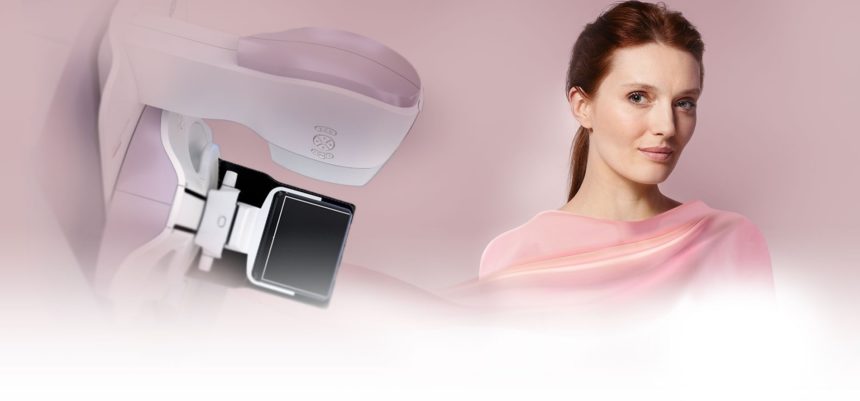Mammograms save lives, but they also cause discomfort. New research by Evans, et al., suggests that painful mammograms may explain why 25 to 46 percent of women do not return for further breast imaging. The study concluded that in order to increase participation rates pain-reducing interventions in mammography are needed.
At Bergen Imaging Center we know that an uncomfortable, squirming patient can compromise image quality, leading to anxiety-inducing callbacks. That’s why we have partnered with GE Healthcare to “make (3D) mammography more comfortable” for our patients with the new Senographe Pristina.
The lifesaving technology has transformed breast tomosynthesis to include ergonomic features designed for maximum comfort—all parts of the equipment in contact with the patients’ breasts have gentle, rounded corners; elegant lighting eases anxiety; and soft armrests have replaced traditional hand grips.
“No woman should miss out on the potentially life-saving benefits of regular mammograms out of fear or anxiety of discomfort. Engineered by a team of women for women, GE Healthcare has transformed mammography…,” said Agnes Berzsenyi, President and CEO of GE Healthcare Women’s Health.
“Senographe Pristina was designed with empathy. It humanizes the mammography experience by increasing comfort and reducing patient anxiety. The system’s potential to help increase the number of annual screening exams is a critical advancement in women’s healthcare,” he said.
Senographe Pristina, which was approved by the FDA in September of 2017, is the only approved digital breast tomosynthesis (DBT) system that delivers the same low dose as a 2D view without compromising image quality. The Pristina emits the lowest dose of all FDA approved 3D mammography devices on the market today.
* Senographe Pristina is a trademark of General Electric Company

